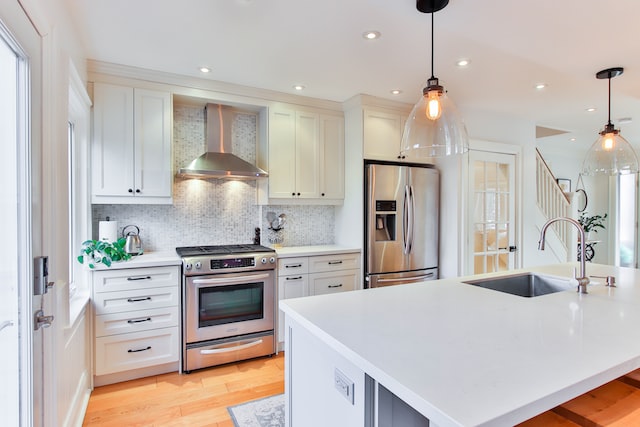Kitchen safety is extremely important, as the kitchen is a place where many accidents can occur. From sharp knives to hot stovetops, there are a multitude of potential hazards in the kitchen. However, with a little bit of knowledge and the right precautions, you can make your kitchen a safe and enjoyable place to cook and prepare food.
Here are some kitchen safety tips to keep in mind:
- Keep a fire extinguisher in the kitchen: In the event of a kitchen fire, having a fire extinguisher on hand can be a lifesaver. Make sure to keep it in an easily accessible location, such as under the kitchen sink or on a wall near the stove. This is the most important kitchen safety rule that should not be ignored by any chance.
- Use the stove safely: When cooking on the stove, always use the back burners whenever possible and keep the handles of pots and pans turned inward to prevent them from being knocked over. Also, be sure to use oven mitts or potholders when handling hot pots and pans, and always keep a close eye on food that is cooking on the stove.
- Keep your kitchen clean: A cluttered and dirty kitchen is more prone to accidents, so make sure to regularly clean and organize your kitchen. Wipe up spills immediately and don’t leave dirty dishes or food out on counters or tables. Keeping yor kitchen dry will prevent accidental falls and injuries in the home.
- Use sharp objects with caution: Sharp knives and other cutting tools are essential in the kitchen, but they can also be dangerous if not used properly. Always use a cutting board when chopping or slicing food, and be sure to hold the blade at a safe angle to prevent accidents.
In addition, be sure to store sharp objects in a safe place when not in use, such as a knife block or in a drawer with a protective sheath. Additionally, ensure that you make use of kitchen cabinet Canada where you can put away all the knives and other sharp objects once you are done using them.
- Keep small children out of the kitchen: Children should be supervised at all times when in the kitchen, as they may not understand the potential dangers. Keep young children out of the kitchen while cooking, and be sure to turn pot handles inward to prevent them from being knocked over by little hands.
Ensure that they do not have access to the stove or sharp kitchen appliances such as knives which are very serious safety hazards. Make them aware of the potential safety risks in the kitchen and make sure they understand why they are not allowed to play in the kitchen.
- Wear appropriate clothing: Loose clothing and long sleeves can be a hazard in the kitchen, as they can easily catch on handles or burners. Wear fitted clothing and roll up long sleeves when cooking to prevent accidents. Also ensure that you wear hair nets when handling food to prevent your hair from falling into the food.
- Use caution when handling hot liquids: Hot liquids, such as boiling water or soup, can cause serious burns if spilled. Be sure to use a pot holder or oven mitt when handling hot pots and pans, and pour hot liquids slowly to prevent spills.
- Don’t leave appliances plugged in when not in use: To prevent accidents, be sure to unplug appliances such as toasters, blenders, and coffee makers when not in use. In addition, be sure to keep cords for appliances out of the way to prevent tripping. Also, ensure that all electronics are kept away from liquids.
- Keep a first aid kit in the kitchen: In the event of an accident, it’s important to have a first aid kit on hand. Keep one in the kitchen in an easily accessible location, and be sure to restock it regularly. This is a very important safety precaution especially if you have children who might accidentally get injured in the home.
- Follow food safety guidelines: In addition to physical safety, it’s also important to follow food safety guidelines to prevent illness. Always wash your hands before handling food, and be sure to properly store and handle food to prevent contamination. Make sure that you check all the expiration dates of food in your kitchen to prevent food poisoning.
Conclusion
By following these kitchen safety tips, you can help prevent accidents and injuries in your home. Remember to always use caution and common sense when cooking and preparing food, and never hesitate to ask for help if you’re unsure of something. Also ensure that your gas pipes are in order so as to avoid any gas leaks. With a little bit of care and attention, you can make your kitchen a safe and enjoyable place to be.

